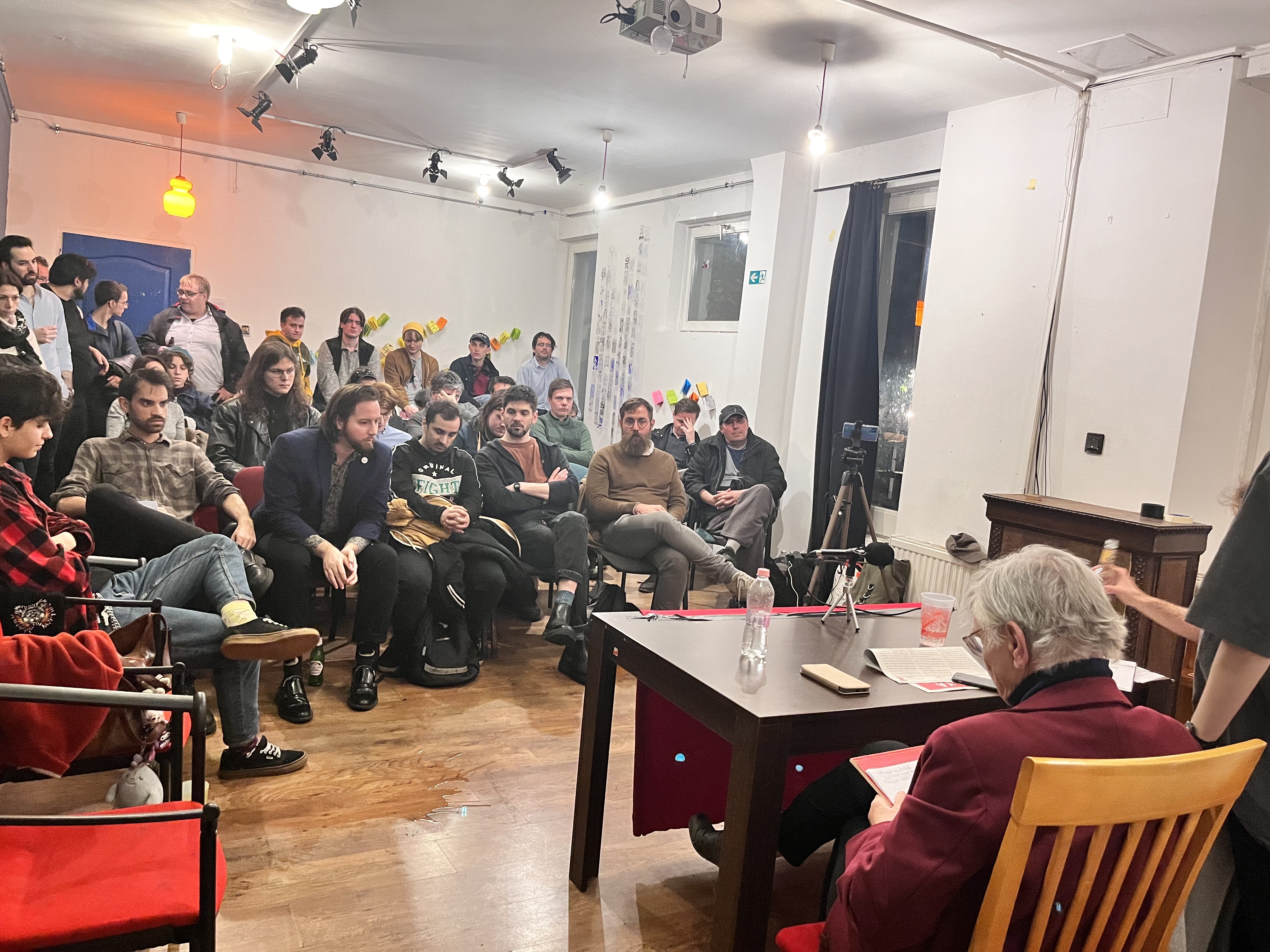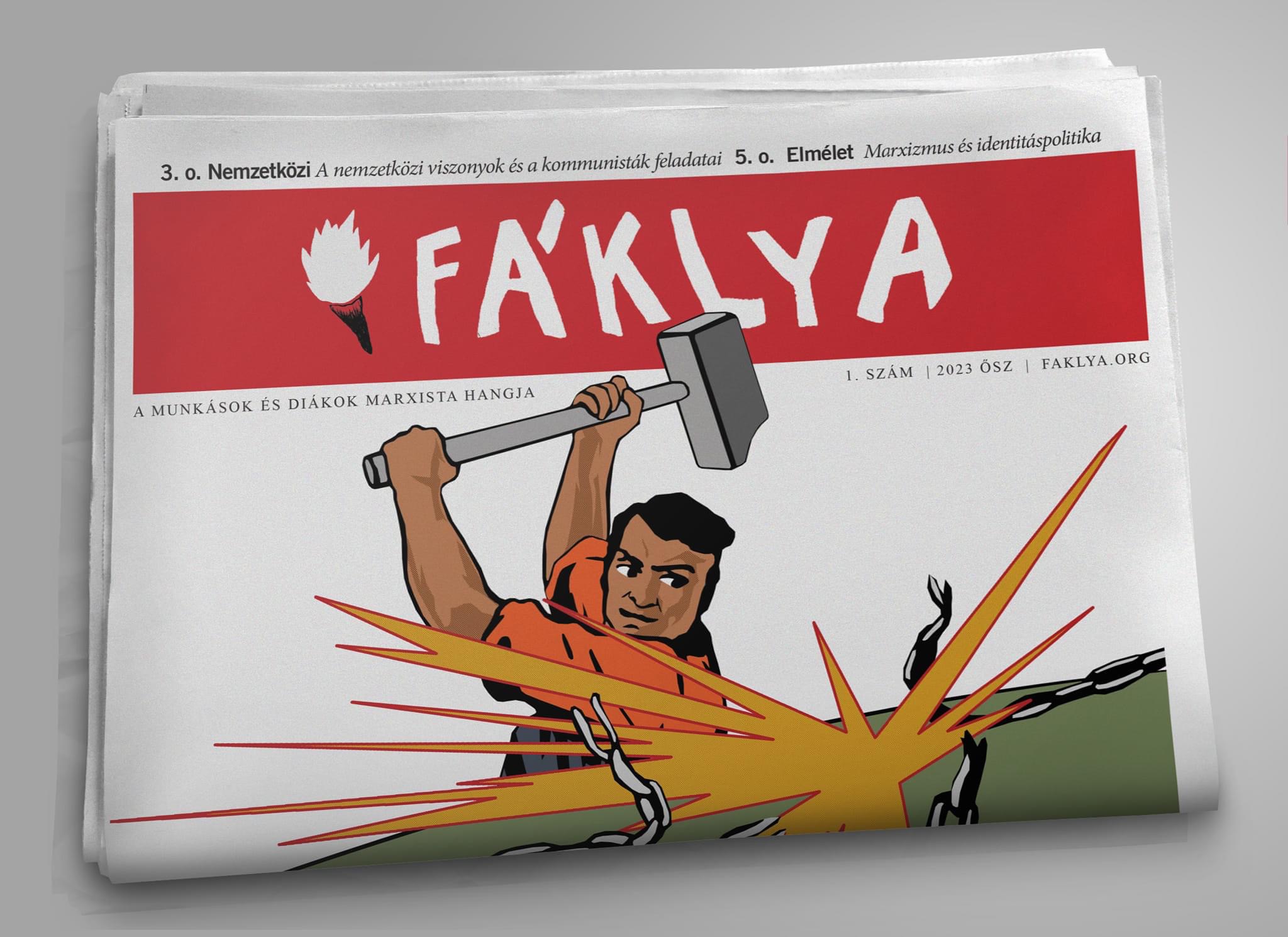In recent decades, there has rarely been a printed Marxist paper in Hungary. This is why it is a tremendous achievement that supporters of the IMT could present the first issue of their newspaper, Fáklya, in early November, to a packed room in Budapest.
The first edition of Fáklya starts with an article explaining the processes that have led to the country being so badly affected by the economic crisis. At the presentation, we highlighted that if we look around the world today, we see crises, wars and the ever-worsening climate catastrophe. A whole generation has grown up with these experiences.
Capitalism has overcome every crisis but only by laying the basis for new, even deeper crises later on. This can clearly be seen today.
The crisis in Hungary
It is in this context that the crisis in Hungary develops. While Prime Minister Viktor Orbán was able to benefit politically from a relative uplift in the global economy after 2012, this short period that was favourable to the Hungarian economy has turned into its opposite. In many respects, the state of the Hungarian economy is among the worst in Europe: the rate of inflation has been the highest in the EU for the last several months; food and energy prices have skyrocketed; housing, the education system and healthcare are all in crisis due to serious underfunding.
While profits have followed inflation, wages have not. In the first quarter of 2023, real wages fell by 15.6 percent. Corporate profits, on the other hand, grew by 61 percent year-on-year. Both figures are the highest in the OECD.
This will have an effect on the consciousness of the working class, which we are already beginning to see. In recent years, workers in many sectors, such as teachers, bus drivers and healthcare workers, have gone on strike or protested for pay rises and better working conditions. As the crisis intensifies, this will only radicalise people further and can broaden these movements, bringing them into conflict not only with the capitalists, but with the stultifying bureaucracy at the head of the labour movement.
One of the most memorable moments of recent strikes was when the Budapest bin collectors went on a wildcat strike in October 2022. When their union leader visited them, calling on them to go back to work or else they would be fired, the workers responded to the bureaucrat by chanting “Go home!".
Anger is clearly felt at the workplaces and on the streets, but the official leaders of the mass organisations are clearly not stepping up to the task. Apart from a few courageous trade union representatives, most of them are afraid to make bold demands and to call for cross-sector action. This could be the basis for the labour movement's resistance to the austerity policies of the Orbán regime.
There is immense potential in this. As Ted Grant put it: “Not a light bulb shines, not a phone rings, not a wheel turns without the kind permission of the working class. When this enormous power is mobilised to change society, no force on Earth can stop it.”
This is why in our newspaper we presented demands that the workers’ movement could put forward to challenge the reactionary, anti-worker politics of the ruling elite, such as.
- Stop giving away state property to Fidesz's cronies! Nationalise big businesses and put them under workers' control! More than a third of total wealth in Hungary is owned by the top one percent and half by the top 10 percent. Only five countries in the world have a higher concentration of wealth than this.
- Let the economy be democratically planned so that production meets the real needs of society! No one should have to work several jobs to live in decent conditions.
- Put an end to food speculation! Food is a right and this should not be affected by wild price swings on the market. Instead, it should be made available cheaply to everyone through rational planning of production and distribution.
- Eliminate the housing crisis by starting a large-scale housing construction program so that everyone can have a roof over their heads.
- Use the wealth of society to make the education system and healthcare accessible to everyone.
We emphasised that achieving these demands, or even if they were taken up by the workers’ movement, would give workers across Europe a huge inspiration to act similarly. The money clearly exists for these demands to be achieved, but it is just hoarded in the banks of the wealthiest capitalists and bankers. A revolutionary communist organisation cannot rely on the internet only / Image: Faklya
A revolutionary communist organisation cannot rely on the internet only / Image: Faklya
But for the workers' movement to have an independent programme and to fulfill this huge potential, it needs to be led by class-conscious workers and youth who will not betray it at the first instance and who dare to make bold demands for the benefit of the working class.
Why do we print a newspaper?
At the presentation, we also discussed why we decided to print a newspaper today. Many would say that producing a physical newspaper is old fashioned, a remnant of the 20th Century. Why produce one in the 21st Century, when almost everyone gets their news from the internet? Why not just maintain a website and take active part on social media platforms?
Fáklya has been active online, using its power to connect to workers and to get our news and ideas out. But, a revolutionary communist organisation cannot rely on the internet only. Its paper is much more than a collection of articles, it is an organiser, an agitator, a propagandist, as well as a source of answers to the questions that working class people desperately ask under the eroding crisis of capitalism.
Printing our own newspaper also provides us with a certain independence from the big social media platforms' censorship. Meta for example used a recently passed Canadian federal law for removing all news content from the Facebook page of Fightback/La Riposte, the Canadian section of the IMT. This included even the links pointing to marxist.com. The workers’ press is vital, as it is the only way to get our message out in a way that we have control over.
Join us!
As Lenin said: “Without revolutionary theory there can be no revolutionary movement.” Our quarterly newspaper will be a platform for analysing the real developments that are taking place both in Hungary and internationally, discussing theory and sharing first hand experiences of the class struggle from our comrades worldwide. The first edition of Fáklya is our first step to becoming a serious revolutionary communist organisation in Hungary, which can provide the ideas and methods that will take the Hungarian working class to power and build a better, communist future for us all.
The building of the revolutionary movement is the burning question of today, not the far future. Do you live in Hungary? Then join us now! Do you want to support our work from abroad? Get in touch with us via email (kapcsolat@faklya.org) or on our social media and get a copy of the paper or other materials!

